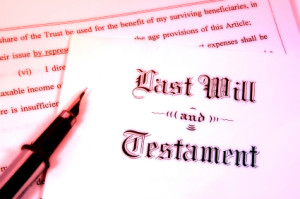Dear Liz: My mother passed away in March due to old age. She lived in California. I live out of state and couldn’t travel because of the pandemic. My siblings took care of her burial. Her will named me executor. I’d like to know how long I have to settle her estate and whether I will need an attorney. Her house was her major asset and was assessed at $400,000. There’s no mortgage. The house goes to an older brother and me, and two grandsons each get $10,000. I want to make sure the grandsons get their inheritances as soon as possible.
Answer: Your grandsons will have to wait awhile. California probate is slow at the best of times, with a typical case taking eight to 12 months or more. Pandemic-related court closures are adding many months to the process. Courts are slowly reopening but dealing with a significant backlog of filings.
Your mother’s will should be filed with the appropriate county within 30 days of her death and the county tax assessor should be notified within 150 days because she was a property owner, said Jennifer Sawday, an estate planning attorney in Long Beach. Though most counties allow electronic filing for probate matters, it’s typically not the most user-friendly process and you may want to consult a probate attorney. The initial consultation is usually free. Hiring an attorney to handle the whole process probably won’t be cheap: By law, probate attorneys can charge 4% of the first $100,000 of the estate, 3% of the next $100,000, 2% of the next $800,000, 1% of the next $9 million, and 0.5% of the next $15 million.
Your mom could have avoided probate entirely if she’d created a revocable living trust, or if she had taken other probate-avoidance measures. In California and many other states, real estate can be passed on with a “transfer on death” deed that avoids probate. She also could have set up bank accounts and designated your grandsons as beneficiaries to avoid probate.
It’s too late now, obviously. But whatever you do, don’t jump the gun by making distributions, Sawday warned.
“If there is a will, under no circumstances should he make the cash gifts to the grandsons until the court admits the will, appoints him as executor and probate actually commences,” Sawday said.
 Today’s top story: Your kids don’t want your stuff. Also in the news: Don’t become a victim of Coronavirus shopping frenzy, what to do if the Coronavirus is affecting your finances, and why you shouldn’t get too excited about cheap gas.
Today’s top story: Your kids don’t want your stuff. Also in the news: Don’t become a victim of Coronavirus shopping frenzy, what to do if the Coronavirus is affecting your finances, and why you shouldn’t get too excited about cheap gas. 
